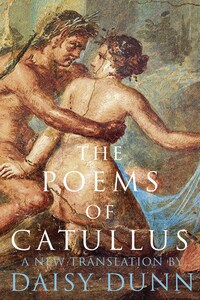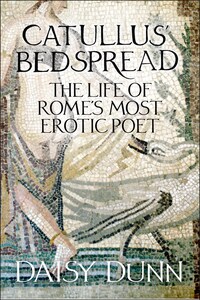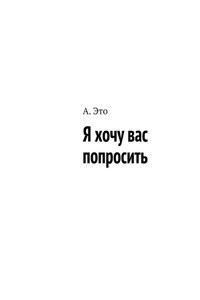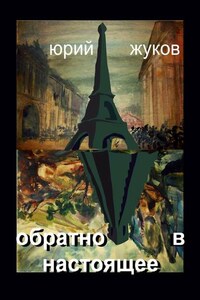William Collins
An imprint of HarperCollinsPublishers
1 London Bridge Street
London SE1 9GF
WilliamCollinsBooks.com
This eBook first published in Great Britain by William Collins in 2016
Translation © Daisy Dunn 2016
Daisy Dunn asserts the moral right to be identified as the translator of this work
A catalogue record for this book is available from the British Library
All rights reserved under International and Pan-American Copyright Conventions. By payment of the required fees, you have been granted the non-exclusive, non-transferable right to access and read the text of this e-book on-screen. No part of this text may be reproduced, transmitted, down-loaded, decompiled, reverse engineered, or stored in or introduced into any information storage and retrieval system, in any form or by any means, whether electronic or mechanical, now known or hereinafter invented, without the express written permission of HarperCollins.
Source ISBN: 9780007582969
Ebook Edition © January 2016 ISBN: 9780007582976
Version: 2016-01-07
On an autumn night in 1962 the poet Robert Lowell ambled through Cambridge, Massachusetts, as far as 35 Brewster Street. He had walked this broad, tree-lined road before as a young student, grasping a bundle of pages, pale grey with pencilled words. His manuscript had weighed heavily upon him as he approached a large gabled house on the road’s midpoint. He was now forty-five and no longer in need of affirmation of his talent; his verse translation of Racine’s Phaedra had recently been feted. Buthe longed to recall the bewildering array of what lay beyond the walls of this dwelling.
In January 1963 his sometime mentor Robert Frost, the great poetic master of pastoral and everyday experience, passed away. ‘The lights were out that night; they were out for good now,’ wrote Lowell, reflecting on the moment, just months earlier, that he revisited the cold threshold of Frost’s former home: ‘Its narrow gray wood was a town cousin of the farmhouses he wrote about, and stood on some middle ground between luxury and poverty. It was a traveler from the last century that had inconspicuously drifted over the customs border of time … I can easily imagine the barish rooms, the miscellaneous gold-lettered old classics, the Georgian poets, the Catullus by his bedside, the iron stove where he sometimes did his cooking, and the stool drawn up to his visitor’s chair so that he could ramble and listen.’>1
Robert Frost read the poetry of Catullus often, mesmerised by his words and the weight and complexity of his sentiments. New England shared little ground with ancient Verona, the nascent town south of the Alps where Catullus was born c.82 BC, or Rome, where he lived in the fraught times before Julius Caesar waged his civil war and the Republic fell to pieces. But Catullus’ passions were timeless, and free, far outliving his brief thirty years on this earth. His ‘little book’ (libellus), a series of over a hundred poems referred to merely by number, and arranged by a mysterious hand in an order that lacks chronology – though not thought – appealed to Frost’s appetite for subtle expression. There could be no better place for Catullus’ poetry book than the bedside, where Frost kept the slim volume Lowell spied in his clapboard house.
Gaius Valerius Catullus, whom scholars often see as the inventor of Latin love elegy, once wrote of how, ‘Undone by passion I tossed and turned all over the bed …’>2 He had spent a long ‘lazy day’ drinking wine, carousing and composing verse with his dear poet friend, Gaius Licinius Calvus Macer, whom he referred to merely as Calvus (‘Suave, suave Calvus’, ‘my dear Calvus’) in further poems. Catullus also wove the finest poem he ever wrote around a bedspread, which he embroidered with the myths of Theseus and Ariadne, sister of the Phaedra who inspired Robert Lowell’s play of 1961.
Frost was probably unaware of how far his bedside copy of Catullus coloured Lowell’s experience of his smart Brewster Street home. Catullus’ book shone more brightly than any of the others in his library, which Lowell’s eyes darted off too eagerly to render more than ‘miscellaneous’. The younger poet’s description of the house itself as ‘a town cousin of the farmhouses he wrote about’ even evokes one of Catullus’ poems, in which he described his retreat on the outskirts of Rome: ‘Dear country pile of mine, whether Sabine or Tiburtine … your suburban dwelling …’










